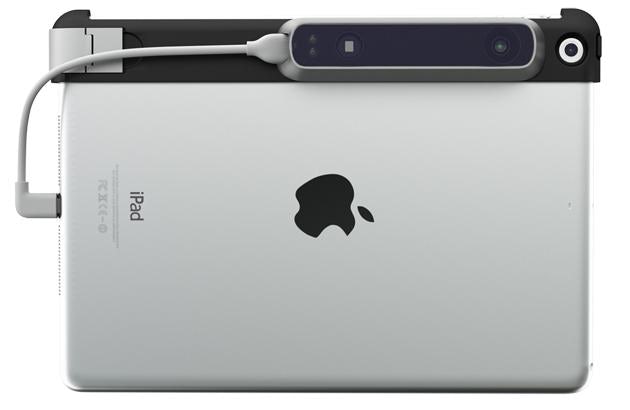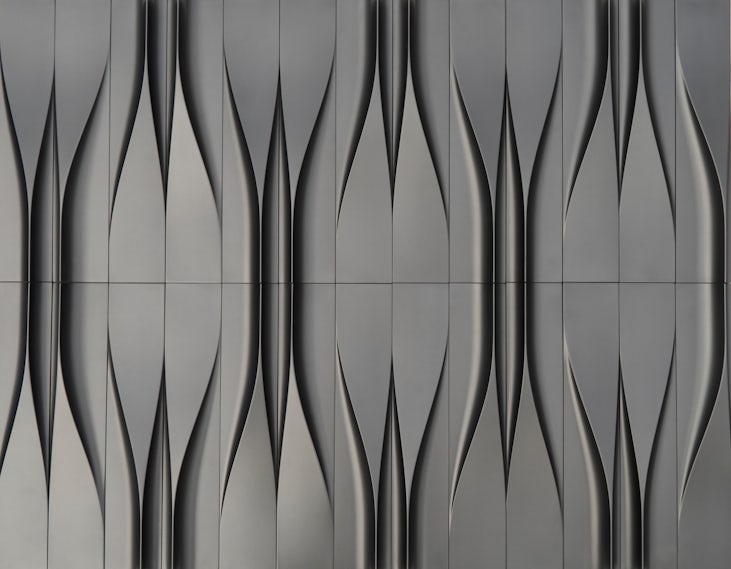The tablet is one of those devices that continues to surprise us. Each year, new apps are released that transform how we use this most ubiquitous of electronic accessories.
Canvas, a new iOS 3D scanning app created by Occipital, is one such game-changing app. The app is designed to work with an earlier product released by Occipital, a sensor that connects to the iPad named Structure. This 3D scanner, which connects to the iPad through the lightning port, uses infrared technology to make 3D scans both of spaces and individual objects.
Viewing on mobile? Click here.
The Structure sensor has been around for a while but has never been as usable as it is now, after the release of Canvas. This app turns your 3D scans into a readily usable 3D map. As you move the sensor around the room, the app’s visual interface guides you, generating paint-like splotches to highlight areas that you missed. When scanning is complete, an interactive 3D model appears instantaneously, ready to be explored and manipulated.
Structure is capable of generating thousands of measurements per second. These become especially useful if you use the “Scan to CAD” feature, which allows you to send your raw scan to Occipital. For a fee of $29 per room, the company converts it into a full-color CAD file complete with easy-to-read measurements that cover every single nook and cranny of the space. The days of the tape measurer are numbered.

The Structure sensor links to the iPad through the lightning port; via PCMag.com.
The revolutionary quality of Canvas really becomes apparent when you start to look at pricing and labor time. “Scanning an eight-room home takes about 30 minutes with Structure, while manual measurements would run around seven hours,” writes Tim Moynihan of Wired, citing estimations related to him by Occipital co-founder Jeff Powers. “Contracting the work would cost close to $2,000, while Occipital charges $29 per room for the ‘Scan to CAD’ feature.”
Whether you are a contractor, architect or just a fan of nifty gadgets, Canvas promises convenience and fun.
Cover image via Wired




